 California recently became the third state in the country to pass a law that requires police to get a court order before they can search through messages, photos, and other digital data stored on phones or company servers. Maine and Utah have passed legislation similar to the California Electronic Communications Privacy Act. Digital rights groups, the American Civil Liberties Union, news organizations, and tech companies have been pushing for similar legislation nationwide under the Email Privacy Act. In general, authorities only need a subpoena to request the information in 47 states.
California recently became the third state in the country to pass a law that requires police to get a court order before they can search through messages, photos, and other digital data stored on phones or company servers. Maine and Utah have passed legislation similar to the California Electronic Communications Privacy Act. Digital rights groups, the American Civil Liberties Union, news organizations, and tech companies have been pushing for similar legislation nationwide under the Email Privacy Act. In general, authorities only need a subpoena to request the information in 47 states.
Tag Archives: current news
Mitchell Honored with Polaris Award
 Joni Mitchell Honored with Polaris Award —Local 47 (Los Angeles, CA) member Joni Mitchell’s fourth album Blue (1971) was selected as the inaugural winner of Canada’s Slaight Family Polaris Heritage Prize, representing the time period of the 1960s through 1970s. “This is the Polaris version of a hall of fame. As with the main Prize, we hope this award will lead to more discussion and discovery of timeless recorded art from our history,” says Polaris Founder and Executive Director Steve Jordan.
Joni Mitchell Honored with Polaris Award —Local 47 (Los Angeles, CA) member Joni Mitchell’s fourth album Blue (1971) was selected as the inaugural winner of Canada’s Slaight Family Polaris Heritage Prize, representing the time period of the 1960s through 1970s. “This is the Polaris version of a hall of fame. As with the main Prize, we hope this award will lead to more discussion and discovery of timeless recorded art from our history,” says Polaris Founder and Executive Director Steve Jordan.
The annual Polaris Music Prize began 10 years ago to honor the best Canadian album of the year. The brand new Heritage Prizes are designed to answer the question of which album would have won the Music Prize had the honor existed in the 1960s through 2005.
Sanders Introduces Pro-Union Bill
 Democratic presidential candidate Senator Bernie Sanders introduced a bill last week that would make is easier for workers to band together and demand better pay and treatment. “Right to work” laws are the right-wing’s favorite way to eliminate the power of unions. Sanders bill, the Workplace Democracy Act, would make “right to work” a thing of the past, no longer allowing states to pre-empt federal labor laws. It would rectify current laws that deny American laborers the right to elect people to represent their best interests and negotiate the “terms and conditions of their employment or other mutual aid or protection” on their behalf. Sanders would like to make it easier to form a union, including eliminating the current two-ballot process.
Democratic presidential candidate Senator Bernie Sanders introduced a bill last week that would make is easier for workers to band together and demand better pay and treatment. “Right to work” laws are the right-wing’s favorite way to eliminate the power of unions. Sanders bill, the Workplace Democracy Act, would make “right to work” a thing of the past, no longer allowing states to pre-empt federal labor laws. It would rectify current laws that deny American laborers the right to elect people to represent their best interests and negotiate the “terms and conditions of their employment or other mutual aid or protection” on their behalf. Sanders would like to make it easier to form a union, including eliminating the current two-ballot process.
The bill would also make it harder for corporations to take advantage of vulnerable, unprotected workers in countries like China. Under Sanders’ bill, employees of US companies in other countries could file labor complaints against the company if they were treated unfairly.
Provincial Unions May Strike
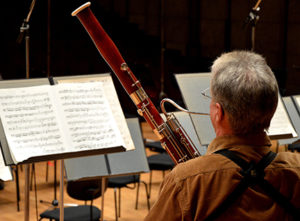 Quebec’s Common Front provincial unions have confirmed they are planning 10 days of rotating strikes in October and November, followed by a three-day general strike at the beginning of December. The unions say the strikes can still be avoided if the government shows good faith in bargaining contract negotiations. Nonetheless, provincial unions may strike.
Quebec’s Common Front provincial unions have confirmed they are planning 10 days of rotating strikes in October and November, followed by a three-day general strike at the beginning of December. The unions say the strikes can still be avoided if the government shows good faith in bargaining contract negotiations. Nonetheless, provincial unions may strike.
The Common Front of employees consists of teachers, health care workers (not including nurses), and civil servants in many fields. They are pressing for higher wages, namely a 13.5% pay hike over three years, while the provincial government says it can only afford a 3% pay hike over five years, as it attempts to reduce Quebec’s public debt. The government also wants to raise the age when workers become eligible for their pensions from 60 to 62.
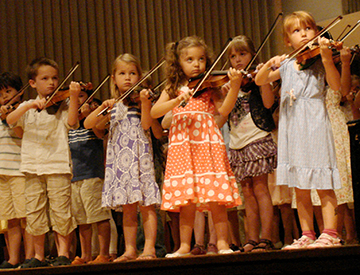
AFM Locals Prepare the Next Generation
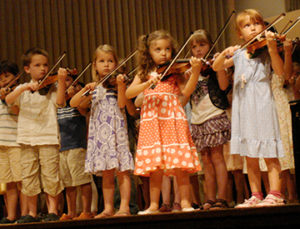 Music shares a fundamentally important trait with many other professions: education is one of the cornerstones in building a secure future. The main thrust of education is three-fold: fostering music education in budding musicians; enouraging interest and awareness in music among the general public to keep the art form alive and vital; and helping new and established musicians learn to cope with the sometimes confusing business and legal aspects of making music.
Music shares a fundamentally important trait with many other professions: education is one of the cornerstones in building a secure future. The main thrust of education is three-fold: fostering music education in budding musicians; enouraging interest and awareness in music among the general public to keep the art form alive and vital; and helping new and established musicians learn to cope with the sometimes confusing business and legal aspects of making music.
AFM Locals Prepare the Next Generation
AFM local offices around the country realize the importance of all of these elements, and take an active role in promoting education in schools, neighborhoods, and performing venues through programs of their own, or working in partnership with area symphony orchestras and educators. Following is a brief look at what just a few locals are accomplishing in their communities, building bridges and educating the public through their hard work and dedication.
Local 6 (San Francisco, CA): The Musicians Workshop Series
Since 2002, Local 6 has been running workshops designed to help performers cope with the business side of their art. Local 6 Assistant to the President Alex Walsh is responsible for organizing the sessions which, according to Secretary Gretchen Elliott, fulfill a vital function in terms of providing career advice and networking for many Bay Area musicians who work as individual performers or in groups for whom the collective bargaining process is not a practical option. “We may not be able to organize these musicians, but we can help guide them smoothly through the process of developing their careers in a productive way,” explains Elliot. “The workshops are also aimed at union members and non-members alike, so participants can see how the union operates and how it can help them,” she says.
Walsh strives to organize at least one workshop every month. Workshops are held in the Local 6 union hall and always allow time for specific questions and answers. The latest installment, held August 24, was entitled “The (Press & Booking) Package.” It discussed the similarities and differences between a booking package and a press package and outlined the differences between what individuals–bookers or press people–may be looking for in each. Topics included the “must haves” in any package, such as what to include in to increase your attractiveness to contractors and the press; whether to send a demo or a professional recording; how many tracks to provide; what the press wants in a photo; and how to write a bio. The Local 6 newsletter also carries regular articles on career development.
Local 655 (Miami, FL): Young Musicians Camp
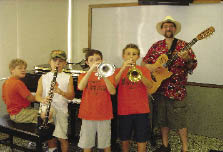
Simon Salz, of Local 655 (Miami, FL) plays with a group of young musicians at the Frost School of Music summer camp.
Increasingly the trend in youth summer camps is to extend education beyond the end of the school year, providing an ideal opportunity to prove to young people that learning is fun. In that spirit, this summer’s Young Musicians Camp at the Frost School of Music, University of Miami teamed up with Local 655.
In addition to music instruction, students got to jam with Local 655 members Ira Sullivan, Phil Strange, Joe Donato, and Huifang Chen, among others. “We feel so fortunate that these great artists are willing to work with our young people at the camp,” writes Director Sarah Neham Salz on the Local 655 Web site (www.afm655.org). “During most of the year these musicians are busy performing, traveling, or teaching college students. They were so excited when I offered them this opportunity.”
Co-director Simon Salz (Local 655) reports that the students enjoyed the experience of playing with professionals. “They’re still talking about it,” he says. “We wanted to hire the most professional musicians we could. Local 655’s Web site helped with this, and I also used it to send out a call for teachers to staff the camp’s new private tutorial component.”
Local 136 (Charleston, WV): Music & Education Committee

Local 136 (Charleston, WV) Secretary Treasurer Greg Nichols, teaching a class called “The Business of Music” at a recent West Virginia Music Showcase cosponsored by the local.
Local 136 shows how Web sites can be used to provide a music education resource for members and the community. “Flying in the face of documented evidence that music education sharpens critical thinking skills, music programs are being slashed coast to coast,” notes the local’s Web site (www.afm136.org). “Working with area musicians has become a big focus for us through the committee,” says the local’s president, Brad Bradley. “We’ve worked to establish artist residency programs at schools. Those schools that can’t afford to bring their students to the Clay Performing Arts Center in Charleston, for performances of the West Virginia Symphony or music classes, are also provided sponsorship.”
The committee also organizes a series of seminars for its musicians on ways to succeed in the music business. The local cosponsors the West Virginia Music Showcase in conjunction with a private music store, providing further opportunities for seminars. The Local 136 Web site posts tips and links about the music business. Currently posted are links to the AFM’s free music software page and the music business tips page from the Nashville New Music Conference Web site.
Local 689 (Eugene, OR): The Young Musicians Project
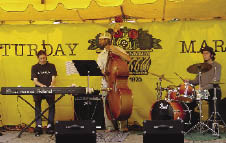
The James Tarpinian Trio performed at a recent Local 689 (Eugene, OR) Young Musicians Project concert. Musicians (L to R): James Tarpinian, Ken Ackerman, and Jason Bradley.
The aim of the Young Musicians Project (YMP) is to help talented students take their first steps toward a professional career. For Local 689, becoming professional means, firstly, being able to perform well at public events. To this end, the YMP has initiated a series of “Young Musicians Concerts” in various locations in Eugene throughout summer and early fall. But just as important a lesson for young musicians to learn is that they deserve to be paid for their work. “Musicians are often asked to provide free entertainment, in spite of their long and costly training,” explains the Local 689 Web site (www.afm689.org). “Yet musicians have bills to pay, and other professionals don’t work for free. Musicians have to learn this lesson early on.” As part of its mission, therefore, Local 689, along with YMP cosponsor the Music Performance Trust Fund, pays the young musicians scale wages, while the concerts remain free and open to the public.
The latest YMP concert took place on the July 4 weekend and was well-attended, according to Local 689 Secretary Violetta Tarpinian. She explains that Local 689 doesn’t use YMP for direct recruitment; rather, it advertises the union as one of the essential tools a young musician should have. “Most of the musicians haven’t heard of the union,” says Tarpinian. “But we leave a good impression, and they’ll keep the union in mind in a good way.”
Local 99 (Portland, OR): Musician Education Assistance Project
The Web site of Local 99’s Musician Education Assistance Project (MEAP) describes the importance of music in schools. “It has been proven that music promotes development skills that cross over into other areas of students’ lives, teaching valuable language skills, promoting physical dexterity, and developing higher brain function,” the site (www.afm99.org) explains. “However, music education is in jeopardy due to shrinking budgets and legislation that has severely cut or canceled music education programs in the schools.”
Taking the bull by the horns, Local 99 formed the nonprofit MEAP in 1997. The aim of the program is to raise and disperse funds to increase music education opportunities for students in elementary and high schools in northern Oregon and southwest Washington. MEAP programs include private instruction scholarships for students aged eight to 11; master class coaching sessions by professional musicians; a lecture series hosted by Local 99 members; in-school performances by professional ensembles; and public fundraising events held yearly to support the MEAP’s mission.
Louisiana Philharmonic Orchestra Returns Home
In September, Louisiana Philharmonic Orchestra performed in the Orpheum theater for the first time since Hurricane Katrina flooded its lower levels five years ago. The nearly century-old Beaux Arts theater, located in New Orleans’ Central Business District, has been restored and renovated. It is one of the few remaining vertical hall designs left in the US and has over he years hosted vaudeville acts, films, and countless orchestra performances. Its acoustics impeccable acoustics are said to rival that of Carnegie Hall.
The restoration brought back the precise 1921 color scheme; the terra cotta ceiling and ornate plasterwork were restored by hand. Modern improvements to the theater include a state-of-the-art audio and lighting system; an adjustable floor plan with removable seating; remodeled green rooms and dressing rooms; six permanent bars; additional restrooms; and two new VIP areas.
Taxi Drivers Worldwide Rally Against Uber
Taxi drivers in cities around the globe continue protest against Uber. Hundreds of New York Taxi Workers’ Alliance drivers protested outside the New York State governor’s office in Manhattan, demanding he drop plays to give transportation companies like Uber a special law to allow them to dispatch fares to private motorists in personal cars. In Edmonton, Canada, shirtless taxi drivers interrupted a council meeting on the subject, while the city of Vancouver has passed a moratorium on Uber. Brussel taxi driver’s, furious over Uber’s launch of a service allowing private car owners to carry passengers, participated in a 1,000-taxi parade from Brussels North station to a press conference at Place Schumann.
International Transportation Workers’ Federation (ITF) Secretary Mac Urata says: “This coordinated union and employer action demonstrates the strength of anger around the world about Uber and other so-called ‘ride-share’ operators, which use private vehicles. We fear they put at risk the welfare of their drivers, the safety of passengers, and the livelihoods of millions of regulated taxi drivers. The ITF, the EFT [IFT Europe], and their affiliates are determined to put a stop to Uber’s illegal actions and bring them to the level playing field with the rest of the taxi industry.

Dropkick Murphys Support Presidential Candidate O’Malley
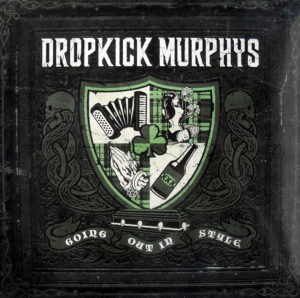 Celtic punk band Dropkick Murphys, members Local 9-535 (Boston, MA), announced their support and approval of Democratic presidential candidate Martin O’Malley’s use of their hit song “Shipping Up to Boston.” They tweeted their approval of the former governor of Maryland’s candidacy saying he “stands up for working people.” Earlier this year Republican presidential candidate Scott Walker’s use of the same song brought the opposite reaction. “We literally hate you” the band tweeted to Walker. Dropkick Murphys version of the Woody Guthrie song first gained popularity as the theme music to Martin Scorsese’s The Departed.
Celtic punk band Dropkick Murphys, members Local 9-535 (Boston, MA), announced their support and approval of Democratic presidential candidate Martin O’Malley’s use of their hit song “Shipping Up to Boston.” They tweeted their approval of the former governor of Maryland’s candidacy saying he “stands up for working people.” Earlier this year Republican presidential candidate Scott Walker’s use of the same song brought the opposite reaction. “We literally hate you” the band tweeted to Walker. Dropkick Murphys version of the Woody Guthrie song first gained popularity as the theme music to Martin Scorsese’s The Departed.
Happy Birthday Finally Free
Yesterday US District Judge George H. King ruled the world’s most popular English-language song is free from copyright. The latest challenge to Warner/Chappell’s hold on the tune, worth around $2 million a year, came from a filmmaker. The opinion contends that the ruling establishes that the rights were never properly transferred. The “Happy Birthday” song dates to the late 19th century work by teacher Patty Smith Hill and her sister Mildred.
The ruling reads in part: “Defendants ask us to find the Hill sisters eventually gave Summy Co. the rights in the lyrics to exploit and protect, but this assertion has no support in the record. The Hill sisters gave Summy Co. the rights to the melody, and the rights to the piano arrangements based on the melody, but never any rights to the lyrics.
Tell Your Arts Story
In celebration of the 50th anniversary of the 1965 signing of the National Foundation on the Arts and the Humanities Act, on September 29, the National Endowment for the Arts (NEA) has launched a special site where the public can share their story of the arts via a simple form.
Anyone and everyone is invited to visit arts.gov/tell-us-your-story and share how the arts are part of your day, how the arts have inspired you to do something unique, how they have made a difference among you and your family, as well as in the communities and neighborhoods in which you live. Also, if there is a specific NEA grant that has had an impact on you and your community, let us know.
Starting September 29, the NEA will begin posting stories on its website and promoting them across our social media. Depending on the volume, the NEA may not be able to include all stories and material it receives.

